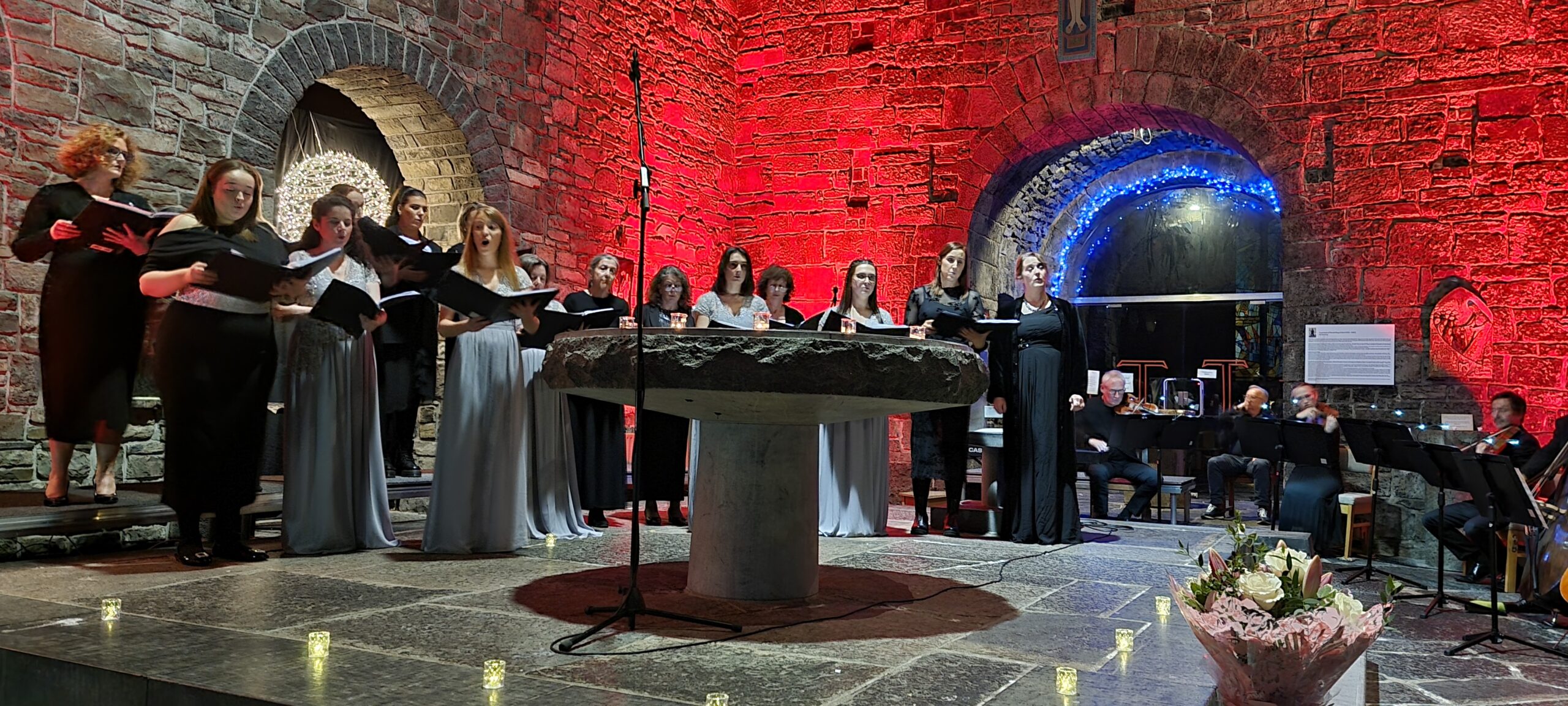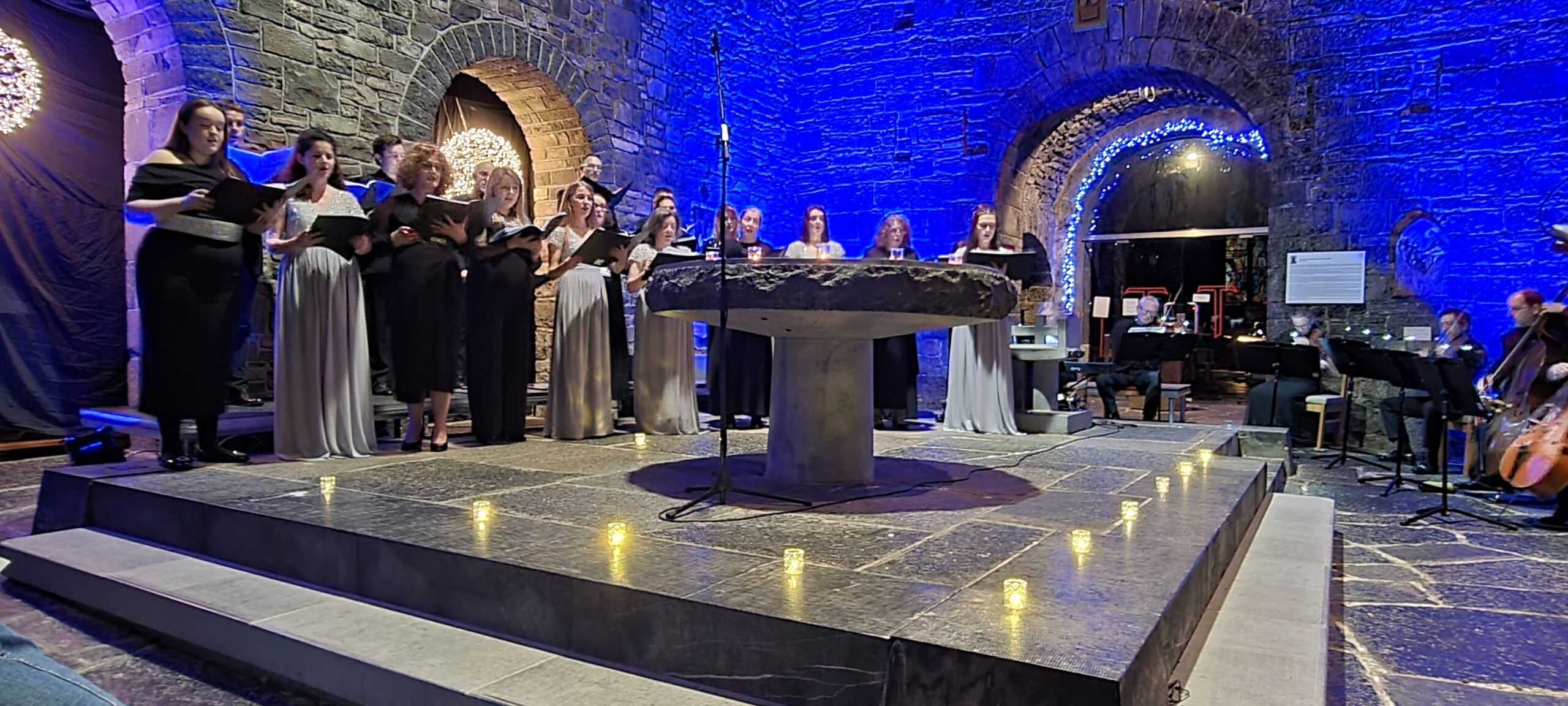Welcome / Fáilte Romhat!
The Franciscan Abbey in Multyfarnham was founded in 1268 and continues to be an active centre of Franciscan mission in Ireland. The only Franciscan Abbey in Ireland still standing on the footprint of its original foundation, the Franciscan fraternity continues its commitment of service from this special place.
Headlines
No Results Found
The page you requested could not be found. Try refining your search, or use the navigation above to locate the post.
Latest Updates
No Results Found
The page you requested could not be found. Try refining your search, or use the navigation above to locate the post.
News
No Results Found
The page you requested could not be found. Try refining your search, or use the navigation above to locate the post.
From the desk of Fr Kieran OFM
Touching and Being Touched
During Covid-19, we were all warned about the dangers of touch. Those many moments of touch that never needed words but which, nonetheless, said all that needed to be said, were impossible! It could be as simple as a handshake, that touch of hand to hand or an embrace that expressed a warmth without ever needing to be verbalised and yet, what was unsaid was understood. It could be to express sympathy, or pleasure at meeting, or congratulations, but whatever it was, touch conveyed so much.
And only when it was gone, did we realise how much touch was important in our lives.
In his reflection, Fr Kieran reflects more deeply on the significance of touch – in the story of the woman with a haemorrhage who wished only to touch to cloak of Jesus to be healed, of the intimacy of Jesus washing the feet of his disciples with his own hands, of Jesus touching the leper and making him clean. We have much to think about!
What time is it?
In this part of the world, it is often the case that we can use terms or phrases in English which, to someone for whom English is not their native language, can be difficult to understand. Often, it is because they are difficult to translate and instead, we have to explain the concept behind the phrase and not just the words. There is many a non-English speaker who has looked perplexed when they put the phrase, “catching a bus” into Google translate!
Fr Kieran points to an example of this in his reflection when he explores the theme of time as recorded in the New Testament, especially in the Gospel reading and second reading for the Third Sunday in Ordinary time (there’s that word again!).
The Greek’s differentiated between ‘chronos’ time – that which is tracked by clocks and watches – and Kairos time, those moments when we are at a point of a critical decision, a make or break, on which so much that follows might depend.
Kieran links this Kairos time of the Gospel with the call to repent, a critical moment, not just to confess our sins but to quote from the final lines of Robert Frost’s famous poem, “The Road Not Taken,” to go in a different direction:
Two roads diverged in a wood, and I-
I took the one less travelled by,
And that has made all the difference.
The Service of Listening
Kieran’s reflection this week centres on the Ordinary Time reading from the first book of Samuel and the story of Hannah, Samuel her son, and Eli. And it is all about listening.
An encounter of being listened to, and being heard, can be transformative. We only have to look across the water at the scandal playing out about the grave injustice done to sub-postmasters and sub-postmistresses by the Britain’s Post Office. Although an injustice that has continued for twenty years, the effect of the ITV dramatisation on the public conscience has led many to say that “for the first time ever, we are being heard.”
God listens to us; and we need to listen to God. Like Hannah, we need to pray to God as, how else can he hear us? And when we do this, and God is always listening, the result can be transformative!
An Evening of Beautiful Music in the Friary
Some buildings lend themselves, naturally, to having good acoustics and the Friary church can count itself among those. And when music is played and sung here, the tones of the voices and of the played music combine with the very stones themselves to deliver a sound that cannot be replicated in any other place. In every sense, it is a unique experience, both for the artists and for their audience.

And so it was last Sunday evening when The Lynn Singers from Mullingar, the Irish Concert Orchestra Quintet, and Vocative, a small six-man group of singers visited us to perform their Winter Concert. An audience of just over 300 people were treated to a beautiful evening of perfect singing, and magnificent and uplifting music. The first half of the evening was given over to The Lynn Singers, Vocative and the ICO Quintet performing “Magnificat” from St Luke’s Gospel (LK 1:46-55). Few of us can say that we have not heard the amazing words of Mary’s prayerful response to the Angel sung. However, Sunday’s performance was one with which few would be familiar. In an arrangement by Kim André Arnesen, a young Norwegian classical composer from Trondheim in that country, the performance of “Magnificat” was quite simply, beautiful. How such a sound could be obtained from so few voices is a mystery and the individual performances were so perfect, that the soprano voices were like the voices of angels filling the Friary church. This arrangement was sung in Latin and while this might, at first, risk disconnecting the audience from the magnificence of the words, having the Latin and English, side-by-side on the back page of the accompanying programme, allowed us to engage with the prayer. A spectacular performance, with Musical Director, Dervilla Conlon skillfully encouraging every note and pause to deliver an impeccable performance.
This was followed by the ICO Quintet with a performance of three pieces, two by Arthur Duff (“Windy Gap” and, “Meath Pastoral”) before concluding with McAnanty’s Reel. Kenneth Rice led the quintet in a spirited uplifting, toe-tapping, rendition of this well-known reel and at times, it seemed that Robin Panter on Viola was going to step forward, put his viola down, and break into the reel itself. Joyful!

The evening concluded with three songs, again from the The Lynn Singers, with Vocative and the ICO. First, we had Moonset, by Don McDonald, a thoughtful piece, followed by Blackbird, a Lennon and McCartney icon to an arrangement by Kenneth Rice of the ICO Quintet, and the evening finished with a song that seldom fails to bring to mind old friends, the Parting Glass, again to a Kenneth Rice arrangement with Audrey Snyder.
Evenings such as this are as rare as they are special, and it will take a few weeks for the last echoes of music from the evening to fade away. It is evenings such as this that remind us of why the Friary church in Multyfarnham has a special place in the hearts of all of us.
T. Gerard Bennett
